Written by Corey Meador, M.S., CCC-SLP at CORA Roanoke
“I’m coughing every time I eat—and I’m not even talking with my mouth full!”
Coughing and choking with meals can be a sign that there is a problem with your swallowing. Speech-language pathologists, also called SLPs, are specialists who work with swallowing difficulties.
Occasional difficulties with swallowing happen to everyone, but when it affects your ability to enjoy eating and drinking, your nutritional status, or affects your everyday functioning it may be time to see an SLP. Swallowing difficulties can occur at any time during your life—and an SLP can help clients from babies to older adults.
What are Swallowing Disorders?
Swallowing disorders or deficits, called “dysphagia” (dis-FAY-juh) can occur in any part your swallow. Take a quick drink of water. Go ahead, I’ll wait.
What had to happen for you to swallow that sip?
You had to get the water to your mouth, put your lips around the cup, bottle, or straw, hold the water in your mouth, and then get it down the correct “pipe.” And all that happened within just a matter of one or two seconds. When people are experiencing swallowing difficulties, there can be a breakdown in one of the three major areas of swallow. SLPs are trained and qualified to provide treatment and compensatory strategies for these changes.
Chewed Up
The first stage of swallowing is called the oral phase. This phase happens exclusively in the mouth. It’s here where you are doing all the biting, chewing, combining your food with saliva to prepare to transport it to the throat. When problems happen here, your SLP can often help to remediate difficulties related to the lips, jaw, and tongue. Typically, symptoms of an oral phrase problem include food and drinks “leaking” from the lips, difficulty with chewing food due to weakness and sensory difficulties, or difficulty with making a “ball” of food in the mouth (called a bolus) in order to start the process of swallowing your food.
Down the Wrong Pipe
The second stage of swallowing is called the pharyngeal phase. This phase mainly occurs in the throat area, and is what people typically associate with swallowing problems. There are many small muscles and nerves that must work together in harmony to make sure you keep the bolus moving in the right direction. This part of the swallow is important for keeping food and drink “going down the right pipe,” and away from the lungs. Again, it is normal to have a “wrong pipe” moment from time to time, but if it is consistently occurring, swallowing therapy may be advised.
In this phase, symptoms usually include coughing and choking during or right after eating and drinking, watery eyes and/or runny nose during eating and drinking, and a “wet” sounding voice after swallowing.
The Food Tube
The final phase of the swallowing is called the esophageal phase, where the food moves from the throat to the stomach. Generally speaking, this area is managed in conjunction with a gastroenterologist (or GI) doctor. While SLPs don’t generally directly treat esophageal dysphagia, we can make recommendations on when to see a GI specialists for your concerns.
How Do You Fix It?
A conversation with your primary care physician is a good place to start. Your doctor can rule out any difficulties related to medication, changes in medical status, and similar difficulties prior to making the referral to see a SLP. Additionally, some doctors may refer you to otolaryngologists (ear, nose, and throat specialists or ENTs) or GI specialists to rule out any other factors. If your doctor feels that speech therapy is indicated, a referral will be made.
SLPs use a combination of imaging studies and observation to make the best recommendations based on your specific needs. A variety of treatment methods can be used to help remediate your problems and get you back to enjoying the dinner table again!
If you or someone you know is experiencing difficulty eating or swallowing, contact our CORA clinic nearest you to learn more or schedule your complimentary assessment from a licensed therapist today.
